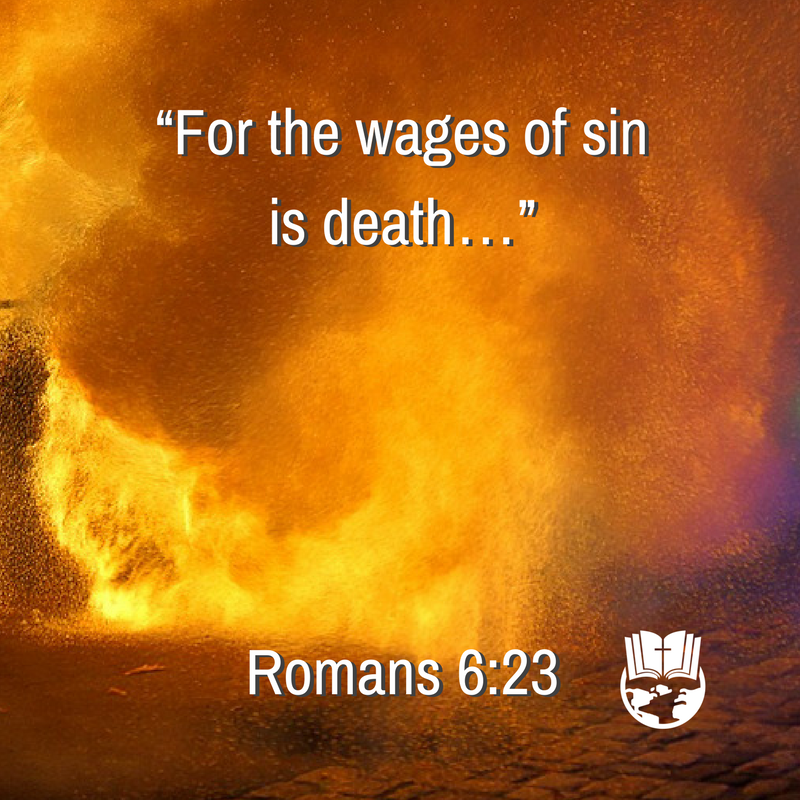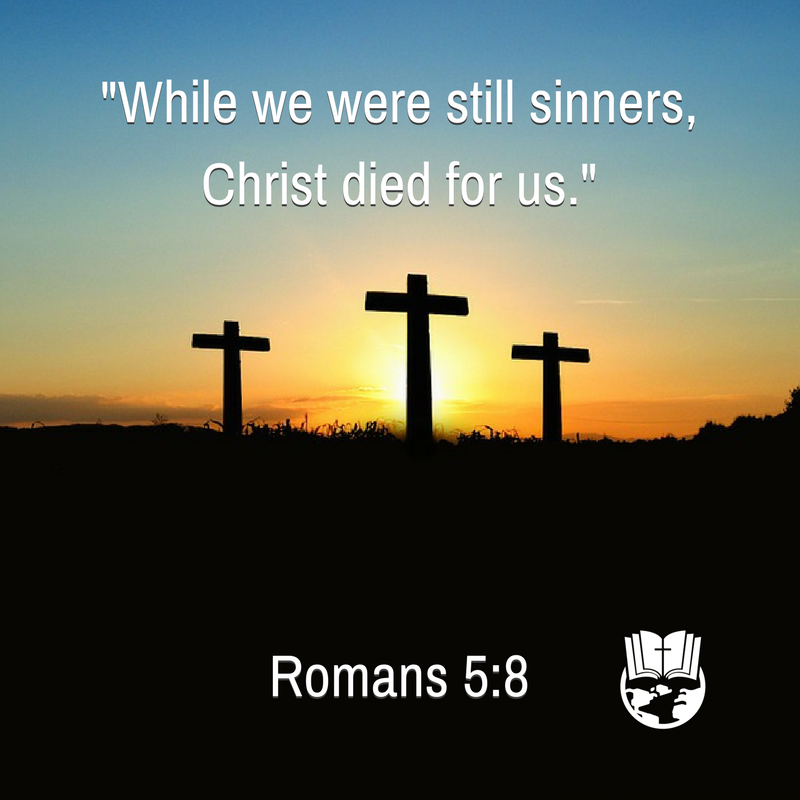A broken law, the spiritual problem, the biblical solution, and Christ’s new kingdom.
Summary
How to be saved? Jesus died, was buried and rose again for sinners (1 Corinthians 15:4). Whoever believes this, turns from their sin, and puts their faith in Jesus will be saved from God’s wrath and reconciled to him.
Extended Answer
Something is wrong with the world. On the one hand, we have skyscrapers, nanotechnology, and the internet. We travel from one side of the 24,901-mile globe to the other in a single day. The accomplishments of our race are mind-numbing.
But on the other hand, things are not tidy. We see senseless lying, mass murder, and a growing child pornography industry. Peruse any news site and you won’t look long until you find another betrayal or suicide bombing.
It can be an ugly world.
Humanity has climbed to the heights of technology and still wallows in moral depravity. Despite our achievements, humanity’s corruption is never hidden. We are a broken people.
The Problem Is With You…And With Me
But the problem isn’t just with an undefined mass of people. In reality, the problem is much closer to home. The real problem – the one that fragments families and societies – is with you. The real problem is with me.
“If we say we have no sin, we deceive ourselves, and the truth is not in us.” (1 John 1:8)
But you may say, “Yeah, but I never do those really bad things. I never cheated on my wife. I never shot my neighbor’s dog. I don’t even cheat on my taxes. Other people do those really bad things.”
In other words, you’re saying I’m not as bad as all of those really bad people. Or more bluntly, “I’m not as bad as Hitler.”

And you’re right. You may never have been a gang banger or signed up for a dating site while you were married. Good for you. But the standard for moral living doesn’t depend on other people. It’s deeper than that, according to the Bible.
Here’s what I mean –
An Illustration: Broken Law Brings Consequences
I’m from Texas. In Texas, we’re known as a ‘law and order’ sort of state. Let’s say I woke up feeling a bit reckless one morning. I jump into my car and fly through a 25-mph school zone. The local sheriff clocks me at 100 mph…just before I hit a small child crossing the street. That sheriff will rightly throw me in jail quicker than I can call my cowboy-booted lawyer.
And I end up in court. That’s when the prosecutor shows the jury the dash cam footage of me speeding and hitting the child. Then he wheels out the injured, now-paralyzed victim.
There’s no getting out of that one.
“The earth lies defiled under its inhabitants; for they have transgressed the laws, violated the statutes, broken the everlasting covenant.” (Isaiah 24:5)
In my home state, after I am convicted, the judge and jury will sentence me to the strictest sentence possible. And I would fully deserve the judgment.
Why? Because in this story, I broke the laws of the State of Texas. A child was gravely injured because of my actions. I was wrong and will justly suffer for my behavior. That’s what happens in criminal law.
But the same is also true in spiritual law.
Living In God’s World Under God’s Law
We live in God’s world. He set up the world in such a way for it to run according to his ways – or law. Though things started perfectly in the Garden of Eden, it didn’t stay that way long. One man and one woman broke God’s law. That broken law is called sin.

And it started in a Garden.
In this ancient garden, God placed one man and one woman on this planet to showcase his glory (Genesis 1:26-31). God gave them one law to obey. The details may have involved a tree, some fruit, and a snake, but the bottom line test in the Garden was about trust.
In essence, God asked the first human beings to trust him. God said, “Do this and you will live or do that and you will you will die.” But they didn’t trust God – they trusted in themselves. (Genesis 3)
You may know the rest of the story — Adam and Eve listened to the serpent, ate the fruit, and fell from a sinless state. They were pure, but became corrupted through sin.
And since then, our glorious but sad race has done the same. We have all chosen our own path over God’s path. And we have suffered the consequences of our bad decisions. Our own brothers and sisters and grandparents stretching back many generations have walked in the path of our first parents, Adam and Eve.
We Broke the Law
Sin is breaking the law. (1 John 3:4).
And what is the law? The law is the rules that God wrote on our hearts (Romans 2:15). It’s the rightness of what we should do and the wrongness of what we should not do. The ‘oughts’ and the ‘ought nots’.
Right and wrong aren’t just a Bible thing. Every culture has a sense of good and bad. Though moral codes vary across cultures, most share similar principles. For example…
- Don’t be a jerk.
- Human life is valuable.
- Be true to your spouse.
- Don’t take something that doesn’t belong to you.
(I’m not saying all cultures agree on the particulars of morality, only that all human cultures share similar moral sensibilities.)
How is that even possible? It’s because God gave his law to every person. You don’t need a Bible to know that torturing kittens for fun is wrong. Nearly every person on the planet acknowledges right things and wrong things.
Biblical Law & Its Consequences
The Bible reveals God’s law in the Ten Commandments (Exodus 20). For our purposes, let’s look at three commandments…
Commandment 1: You shall have no other gods before me. (Exodus 20:3)
Commandment 5: Honor your father and mother (Exodus 20:12)
Commandment 7: You shall not commit adultery (Exodus 20:14)
For the moment, forget about your spouse, your girlfriend/boyfriend, your brother, sister, friend, and even Hitler. Especially Hitler. Just think about you.
Can YOU pass this test?
Have you always followed each of these three commandments?
For #1, have you always worshiped and praised the God of the Bible? Have you ever prayed to a saint, a statue, or another god besides the God of the Bible? If you have ever praised anything more than the one true God, you have broken the first commandment.
For #5, have you ever dishonored your father and mother? Have you ever spoken ill of your mom or dad, regardless of how honorable they really were or are? Have you ever yelled at them, cursed at them, in front of them, or behind their backs? If you have ever dishonored your father or mother, you have broken the fifth commandment.
For #7, have you ever committed adultery? Have you ever slept with a person you are not married to, while you were married to another person? Jesus, explained this commandment to mean that if anyone lusted after a woman, he had already committed adultery with her in his heart (Matthew 5:28). So, even if you’ve been physically faithful to your spouse, if you’ve lusted after another person to whom you were not married, you have broken the seventh commandment.
Did you pass the test?
No?
This was just a sampling of the “should’s” and “should not’s” of God’s law. What would happen if we looked at all Ten Commandments? But we don’t have to. If you’ve broken just one of these commandments, you are guilty of breaking all of them (James 2:10). You are, in Biblical vernacular, a sinner.
The Consequences of Sin
So what happens to sinners?
In criminal law, if you’re convicted of a crime, you pay for it in prison time, fines, and sometimes, in Texas, with your life. You can do something so bad that the state requires you to die for your crimes.
Remember my example of speeding and severely injuring a child. That hypothetical crime would send me to jail for years.
In spiritual law, the principle is no different.
When God convicts you of breaking his law – as in the three commandment test – you’re on the hook for the crime. You must pay the price. In the spiritual world, the consequences don’t immediately follow the sin. In fact, it can be 100 years later. But eventually sin catches up with you.
And you will die.

Now you may be thinking, “Yeah, but everyone dies. And what makes sleeping with my girlfriend. Everyone does something wrong, and certainly not as bad as me.”
You’re absolutely right. Everyone sins and everyone dies.
And your sins may not be as bad as your best friend’s or your dad’s, or Hitler’s. But God’s grading scale isn’t yours (Isaiah 55:8). He is holy. He’s so holy, he doesn’t look upon evil (Habakkuk 1:13). Your secret peccadilloes may be tolerated in your country but not in God’s kingdom, because God is very different from us.
The Bible declares, “the soul who sins shall die” (Ezekiel 18:20).
Jesus Taught About Eternal Judgment
“His winnowing fork is in his hand, and he will clear his threshing floor and gather his wheat into the barn, but the chaff he will burn with unquenchable fire.” (Matthew 3:12)
Because of sin, we must die. But death doesn’t end for the unrepentant sinner. Death continues in judgment. Jesus, himself, taught about the continued judgment for sinners in hell. Jesus used several terms to describe hell, like…
- “unquenchable fire” (Matthew 3:12, Mark 9:45)
- “being in torment”, “anguish in this flame” (Luke 16:23, 24)
- “none may cross” (Luke 16:26)
- “burned with fire” (Matthew 13:40)
- “weeping and gnashing of teeth” (Matthew 13:50)
Many people may say they respect Jesus as a good teacher. But when confronted with some of the things he taught – things like hell – they back down. Yet the real Jesus, who taught us to “love our enemies” and “pray for those who persecute you” (Matthew 5:44), also promised a “fiery furnace” (Matthew 13:50) to those who would not repent.
Just as the judge in the above illustration was good to send me to prison for maiming a child, so also God is good to punish those who break his laws. It doesn’t matter if you sinned less than your drinking buddies or ladies.
Your sin remains unless it’s taken away.
But God Loves Sinners
And we will suffer the consequences for our sins in eternal judgment if nothing changes.
But God loves sinners (John 3:16).
In fact, he demonstrated his affection for sinners by sending his son Jesus to die for them (Romans 5:8). This is God’s good news, or gospel. It’s the same gospel the early Christian Apostles taught. And it’s the gospel that the church continues to proclaim. Simply put…
“Christ Jesus came into the world to save sinners.” (1 Timothy 1:15)

The gospel isn’t just about saving us from the consequences of sin. It did that, but something else happened. It also brings us back to God. As unrepentant sinners, we are under God’s wrath (John 3:36). But as saved sinners, we are reconciled to him (2 Corinthians 5:17). The anger is gone, and the affection returns.
But you can’t just be forgiven and make peace with God by virtue of your reading this. You have to respond to the good news.
Responding To The Good News
So what’s your response?
Will you agree with every part of this good news?
- God created the world and gave us his law to obey.
- You have broken his law & deserve punishment.
- God sent Jesus to die, be buried, and be resurrected to save sinners.
- Jesus is the savior of your sins.
If you believe this good news of Christ’s death, burial, and resurrection, then turn away from your sins, God will save you. Trust God to save you from the punishment and power of sin. Believe in the Lord Jesus and you will be saved (Acts 16:31).
“The times of ignorance God overlooked, but now he commands all people everywhere to repent.” (Acts 17:30)
More specifically…
A. First, admit your sinfulness. The Bible says, “For all have sinned and fall short of the glory of God” (Romans 3:23). To respond to the gospel, you must admit your sin. You must call out to God for forgiveness.
B. Second, believe that Jesus Christ, the Son of God, came to the world to save sinners like you. Believe that Jesus died in your place and rose again from the dead proving to be the Son of God. (1 Corinthians 15:3,4)
C. Third, commit your life to Jesus as Lord and leader of your life. “Confess with your mouth that Jesus is Lord and believe in your heart that God raised him from the dead, you will be saved.” (Romans 10:9). So commit your life to Him by loving Him, surrendering to Him, and obeying Him.
But What If I Don’t Believe?
But many of you do not believe this good news.
There are many objections to this and other Biblical claims, which make it impossible to believe the simple message. I understand. These things can be hard to believe at first.
This is one of the primary reasons Truth Story was created: to bring you competent answers to serious objections to the Christian faith in a way that’s easy to understand. So seek out the answers to your questions. And be honest with yourself about where those answers lead.
What If It Seems Too Hard?
Finally, God doesn’t want half-hearted believers. He doesn’t want you to believe that to fit in. Many people saw that believing was too difficult and left Jesus…and Jesus didn’t chase after them (John 6:66).
True faith can be difficult.
Jesus understood this when he told his prospective followers to count the cost before committing to following him (Luke 14:28-33). The message may be simple and free, but the real-world application may cost you everything you hold dear. But if you follow Christ, God will take care of everything you truly need.
So if you do not believe this good news, my prayer for you would be this…
- Consider God’s claims in the Bible and the gospel.
- Examine the answers to your objections.
- Count the cost.
- Turn from your sin.
- Believe the good news.
God’s good news is the only source of freedom from the tyranny of sin. It is also the only way to make peace with God. The gospel is how to be saved from God’s wrath against sin and to be reconciled back to God.
Postscript: God’s Call in the Kingdom of God
When a person is saved, they don’t usually die immediately afterward. God, in his wisdom, allows a new Christian to live on with a new purpose in “the kingdom of God” (Luke 10:9).

This is the same kingdom that started with Jesus’ first coming and continues to this day. He also calls you and me to participate in his work. These are the good things that God wants accomplished on the planet through his people. He’s not just interested in rescuing us from hell and reconciling us to himself. He also wants to put us to work in his kingdom.
So God saves us…
- From his wrath.
- To be reconciled to him.
- For work in his kingdom.
Resources
- Matt Slick on How does someone become saved?
- Greg Gilbert on What Is the Gospel?








